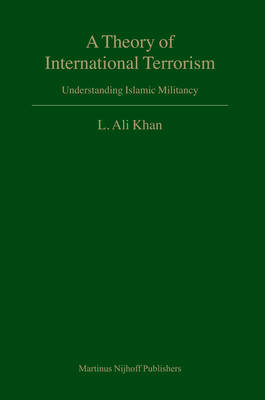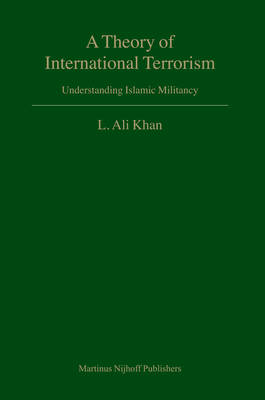
Door een staking bij bpost kan je online bestelling op dit moment iets langer onderweg zijn dan voorzien. Dringend iets nodig? Onze winkels ontvangen jou met open armen!
- Afhalen na 1 uur in een winkel met voorraad
- Gratis thuislevering in België vanaf € 30
- Ruim aanbod met 7 miljoen producten
Door een staking bij bpost kan je online bestelling op dit moment iets langer onderweg zijn dan voorzien. Dringend iets nodig? Onze winkels ontvangen jou met open armen!
- Afhalen na 1 uur in een winkel met voorraad
- Gratis thuislevering in België vanaf € 30
- Ruim aanbod met 7 miljoen producten
Zoeken
€ 152,08
+ 304 punten
Omschrijving
A Theory of International Terrorism studies Islamic militancy in the geopolitical contexts of Chechnya, Kashmir, Palestine, and the September 11 attacks on the United States. These contexts have shaped a global ontology of Islamic terrorism, which asserts that puritan Islam is inherently violent and Muslim militants are addicted to carnage. This ontology is significantly changing international law. It defends the preemptive war on terror and disregards civil liberties, prescribing extra-judicial killings, torture, renditions, indefinite detentions, and numerous other human rights violations. These normative shifts are considered inevitable to suppress Muslim militants. Questioning these shifts, the book argues that the policy of no negotiations with Muslim militants is contrary to the UN Charter. It also argues that terrorism cannot be eradicated unless the Nation-State evolves into the Free State, a concept developed in The Extinction of Nation-States (1996) and A Theory of Universal Democracy (2003). Universities, governments, and international organizations will find this book a source of valuable information.
Specificaties
Betrokkenen
- Auteur(s):
- Uitgeverij:
Inhoud
- Aantal bladzijden:
- 388
- Taal:
- Engels
- Reeks:
- Reeksnummer:
- nr. 56
Eigenschappen
- Productcode (EAN):
- 9789004152076
- Verschijningsdatum:
- 30/06/2006
- Uitvoering:
- Hardcover
- Formaat:
- Ongenaaid / garenloos gebonden
- Afmetingen:
- 163 mm x 244 mm
- Gewicht:
- 839 g

Alleen bij Standaard Boekhandel
+ 304 punten op je klantenkaart van Standaard Boekhandel
Beoordelingen
We publiceren alleen reviews die voldoen aan de voorwaarden voor reviews. Bekijk onze voorwaarden voor reviews.











